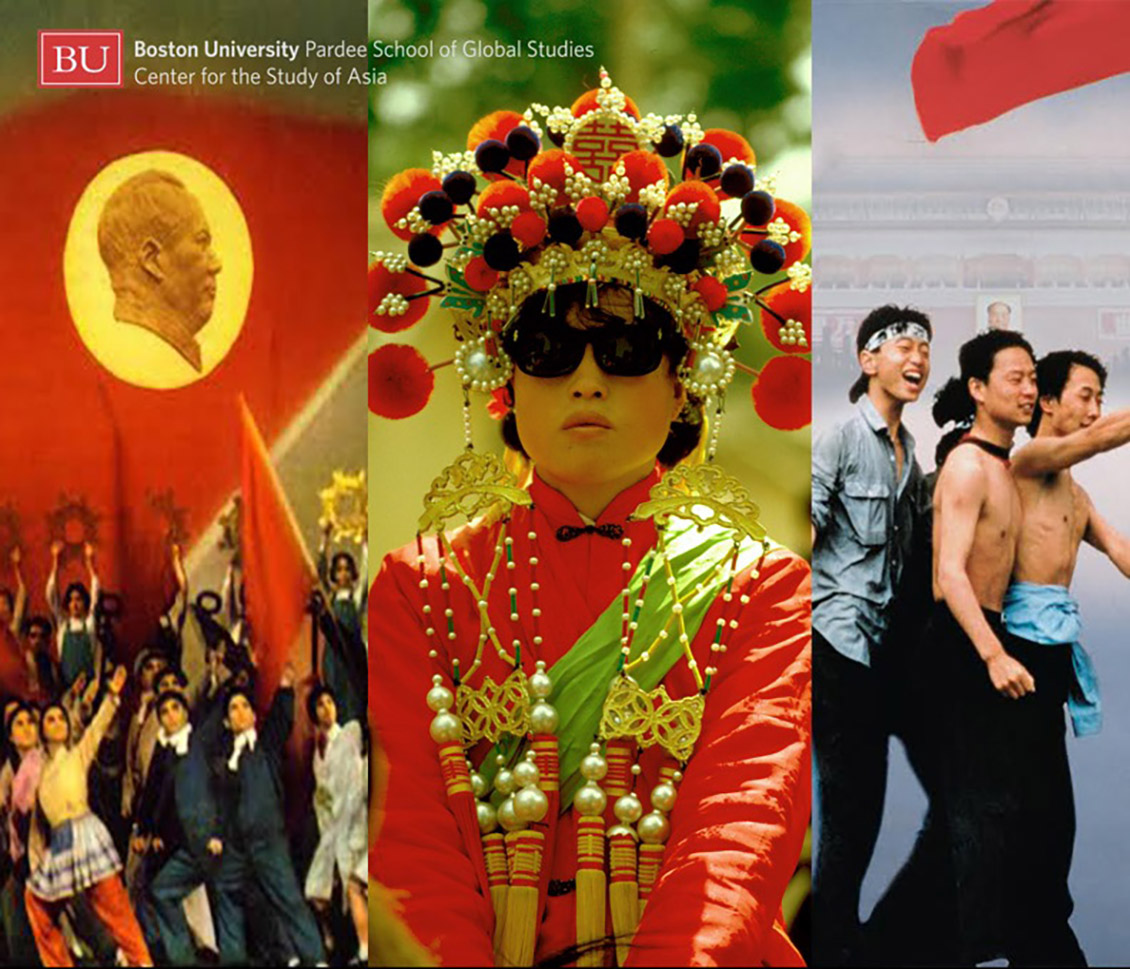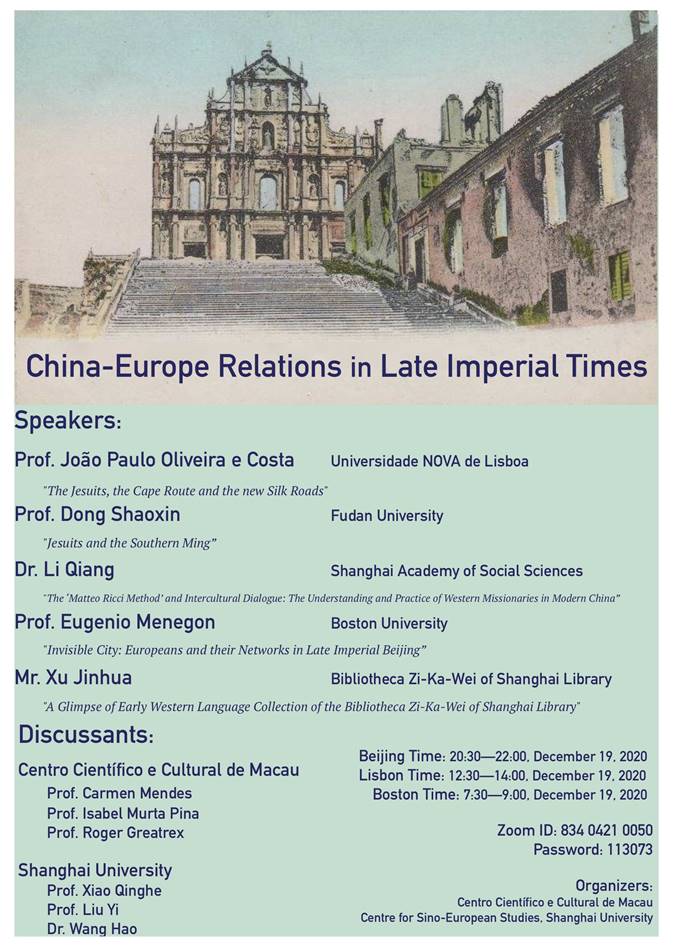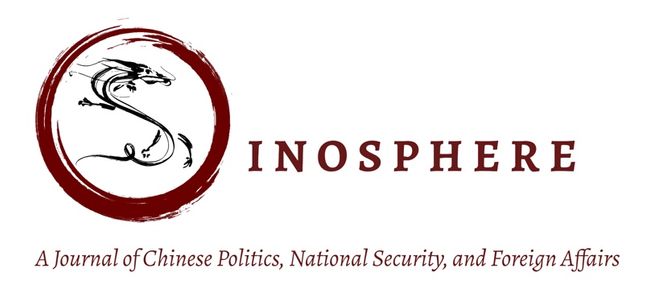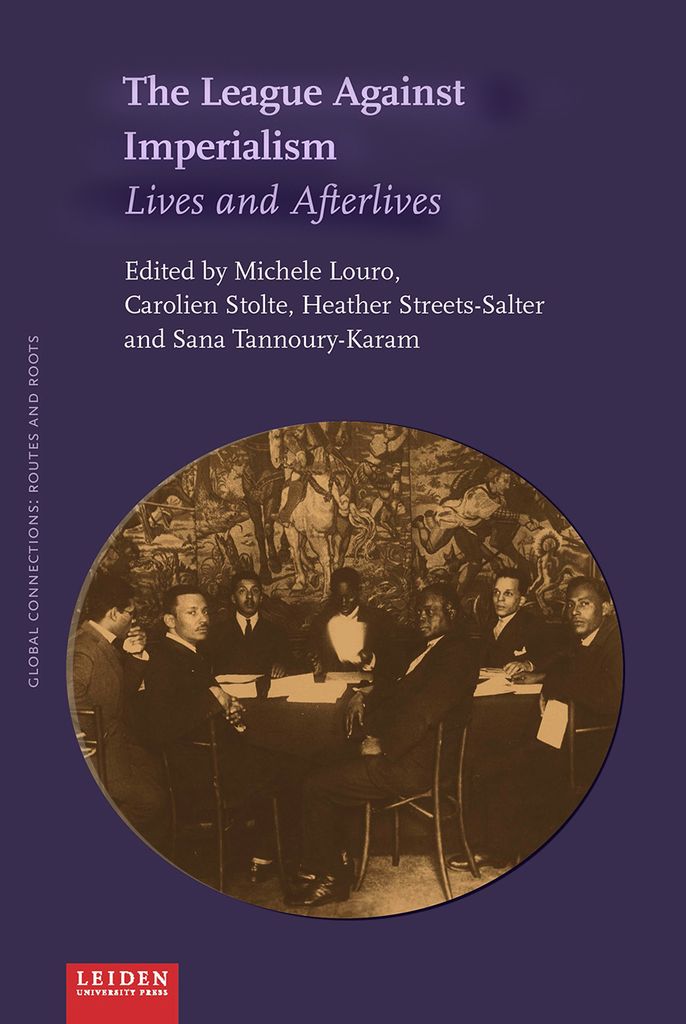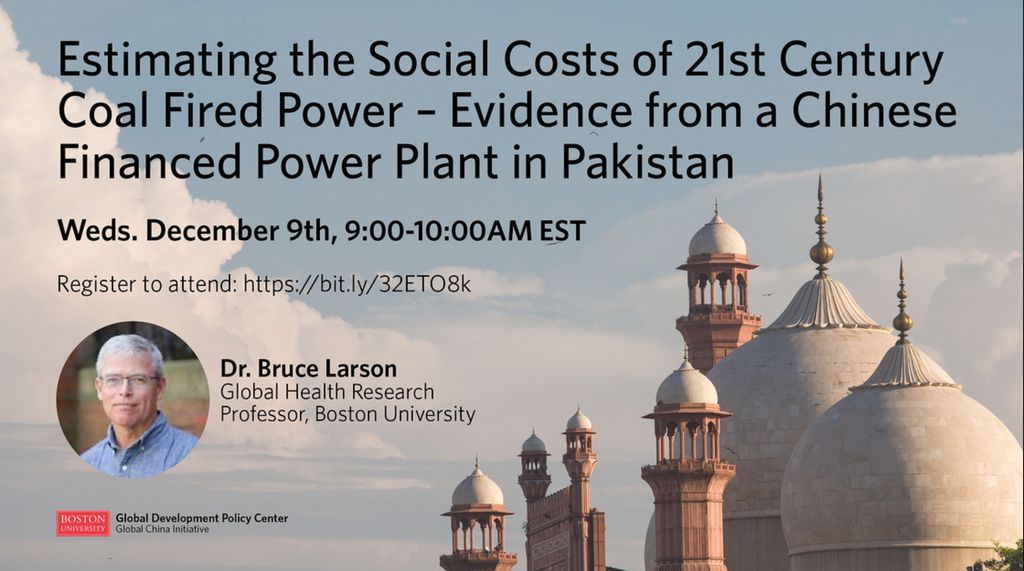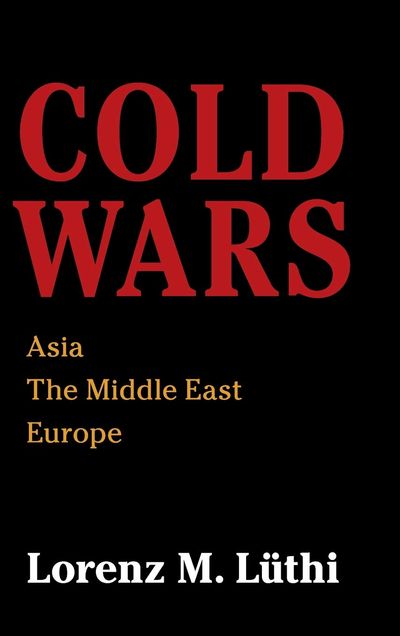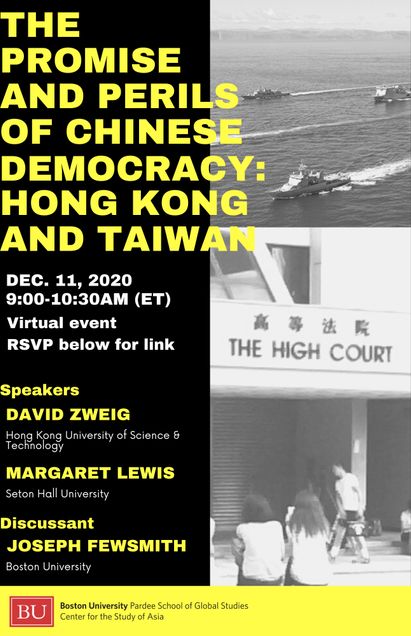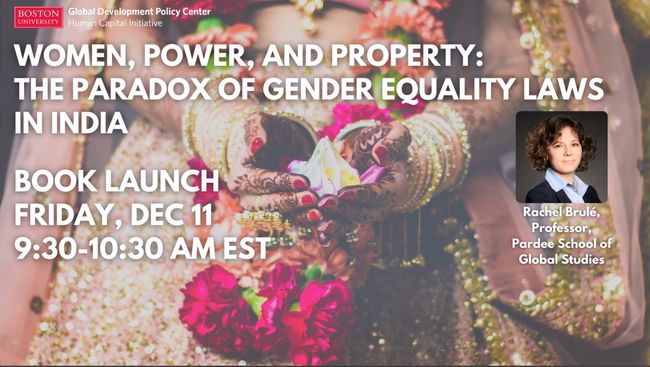History in Images, History in Words: In Search of Facts in Documentary Filmmaking
History in Images, History in Words:
In Search of Facts
in Documentary Filmmaking
A lecture by Carma Hinton
Robinson Professor of Visual Culture and Chinese Studies at George Mason University
Monday April 10, 2017 from 4-7 pm
at the Photonics Center (9th fl.), 8 St. Mary’s Street, Boston University
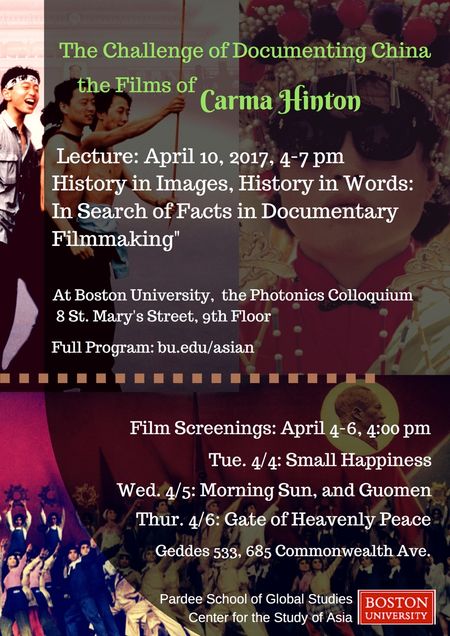 My presentation will focus on the process of documentary filmmaking, especially the many challenges my team and I faced in trying to create engaging filmic narratives that are both factually accurate and encompass multiple perspectives. I will use excerpts from my films as well as out-takes to illustrate the difficulties in determining what information to include and exclude, assess the compromises involved in the choices, and explore the consequences of taking various possible paths. I will also address the different problems that a historian encounters when presenting history in images as opposed to in words: the potential and limitation of each medium and what information each might privilege or obscure. I believe that in this age of “alternative facts” and “parallel universes,” reflections on the challenges in obtaining authenticity and truth and the importance of relentlessly striving to reach this goal, take on particularly urgent meaning.
My presentation will focus on the process of documentary filmmaking, especially the many challenges my team and I faced in trying to create engaging filmic narratives that are both factually accurate and encompass multiple perspectives. I will use excerpts from my films as well as out-takes to illustrate the difficulties in determining what information to include and exclude, assess the compromises involved in the choices, and explore the consequences of taking various possible paths. I will also address the different problems that a historian encounters when presenting history in images as opposed to in words: the potential and limitation of each medium and what information each might privilege or obscure. I believe that in this age of “alternative facts” and “parallel universes,” reflections on the challenges in obtaining authenticity and truth and the importance of relentlessly striving to reach this goal, take on particularly urgent meaning.
About the speaker:
Carma Hinton is an art historian and a filmmaker. She received her Ph.D. in Art History from Harvard University and is now Robinson Professor of Visual Culture and Chinese Studies at George Mason University. Together with Richard Gordon, Hinton has directed many documentary films, including Small Happiness, All Under Heaven, To Taste a Hundred Herbs, Abode of Illusion: The Life and Art of Chang Dai-chien, The Gate of Heavenly Peace, and Morning Sun. She has won two Peabody Awards, the American Historical Association’s John E. O’Connor Film Award, the International Critics Prize and the Best Social and Political Documentary at the Banff Television Festival, and a National News & Documentary Emmy, among others. Hinton is currently working on a book about Chinese scrolls depicting the theme of demon quelling. Carma Hinton was born in Beijing. Chinese is her first language and culture.

China-Europe Relations in Late Imperial Times: An International Workshop (Dec. 19, 2020)
The Centro Cientifico e Cultural de Macau and the
Centre for Sino-European Studies, Shanghai University
invite you to take part in the international online workshop
China-Europe Relations in Late Imperial Times
Saturday, December 19, 2020
from 7:30-9:00 AM EST (20:30-22:00 Beijing time; 12:30-14:00 Lisbon time)
Connect by Zoom:
Meeting ID 834 0421 0050, password 113073
Speakers:
Prof. João Paulo Oliveira e Costa (Universidade NOVA de Lisboa), "The Jesuits, the Cape Route and the New Silk Roads"
Prof. DONG Shaoxin (Fudan University), "Jesuits and the Southern Ming"
Dr. LI Qiang (Shanghai Academy of Social Sciences), "The 'Matteo Ricci Method' and Intercultural Dialogue: The Understanding and Practice of Western Missionaries in Modern China"
Prof. Eugenio Menegon (Boston University), "Invisible City: Europeans and their Networks in Late Imperial Beijing"
Mr. XU Jinhua (Bibliotheca Zi-Ka-Wei of the Shanghai Library), "A Glimpse of the Early Western Language Collection of the Bibliotheca Zi-Ka-Wei of the Shanghai Library"
Discussants:
Centro Cientifico e Cultural de Macau:
• Prof. Carmen Mendes
•Prof. Isabel Murta Pina
•Prof. Roger Greatrex
Shanghai University
•Prof. XIAO Qinghe
•Prof. LIU Yi
•Dr. WANG Hao
Grad students-submit your China-related research for publication in the journal Sinosphere
TEST_BRI
DATE
Sorry. This form is no longer available.
Super Continent: The Logic of Eurasian Integration, with Kent Calder (Dec. 4, 2020)
Kent E. Calder
School of Advanced International Studies, Johns Hopkins University
Friday, December 4, 2020, 9:00 AM (EST) via Zoom
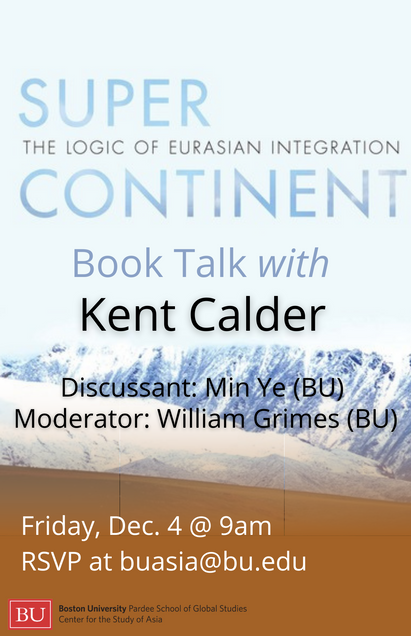
Explore the growing relationship between China's Belt and Road Initiative (BRI) and
Eurasian continentalism
Eurasian transformation is underway, and it flows from China. With a geopolitically central location, the country's domestic and international policies are poised to change the face of global affairs. The Belt and Road Initiative has called attention to a deepening Eurasian continentalism that has, argues Kent Calder, much more significant implications than have yet been recognized. In Super Continent, Calder presents a theoretically guided and empirically grounded explanation for these changes. He shows that key inflection points, beginning with the Four Modernizations and the collapse of the Soviet Union; and culminating in China's response to the Global Financial Crisis and Crimea's annexation, are triggering tectonic shifts. Furthermore, understanding China's emerging regional and global roles involves comprehending two ongoing transformations—within China and across Eurasia as a whole—and that the two are profoundly interrelated. Calder underlines that the geo-economic logic that prevailed across Eurasia before Columbus, and that made the Silk Road a central thoroughfare of world affairs for close to two millennia, is reasserting itself once again. [From the Stanford University Press website ]
Discussant: Min YE (Associate Professor of International Relations, Boston University)
Moderator: William Grimes (Professor of International Relations and Political Science, Boston University)
This event is sponsored by the BU Center for the Study of Asia as part of the ongoing Pardee School of Global Studies cross-center initiative at Boston University, Assessing China’s Belt and Road Initiative, coordinated by Dr. Grant F. Rhode (BU Center for the Study of Asia)
Please RSVP to buasia@bu.edu to receive the Zoom link
About the author:
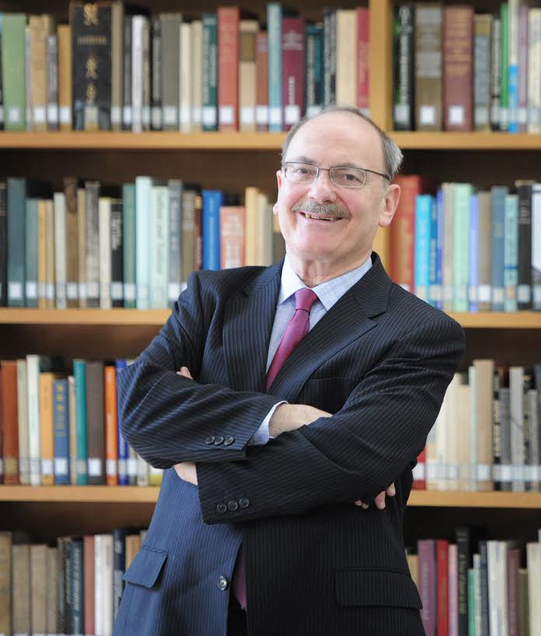 Kent E. Calder serves as the Director of the Edwin O. Reischauer Center for East Asian Studies. He previously served as Vice Dean for Faculty Affairs and International Research Cooperation at the Johns Hopkins School of Advanced International Studies (SAIS) from 2018 to 2020 and as Director of Asia Programs from 2016 to 2018. Before arriving at Johns Hopkins SAIS in 2003, Calder served as Special Advisor to the U.S. Ambassador to Japan, Japan Chair at the Center for Strategic and International Studies, Professor at Princeton University, Lecturer on Government at Harvard, and as the first Executive Director of Harvard University’s Program on US-Japan Relations. Calder received his PhD from Harvard University in 1979, where he worked under the direction of Edwin O. Reischauer. A specialist in East Asian political economy, he has spent eleven years living and researching in Japan and four years elsewhere in East Asia. In 2014, he was awarded the Order of the Rising Sun, Gold Rays with Neck Ribbon. Calder’s most recent works include Super Continent: The Logic of Eurasian Integration (Stanford, 2019); Circles of Compensation: Economic Growth and the Globalization of Japan (Stanford, 2017); Singapore: Smart City, Smart State (Brookings, 2017); Asia in Washington (Brookings, 2014); and The New Continentalism: Energy and Twenty-First Century Eurasian Geopolitics (Yale, 2012).
Kent E. Calder serves as the Director of the Edwin O. Reischauer Center for East Asian Studies. He previously served as Vice Dean for Faculty Affairs and International Research Cooperation at the Johns Hopkins School of Advanced International Studies (SAIS) from 2018 to 2020 and as Director of Asia Programs from 2016 to 2018. Before arriving at Johns Hopkins SAIS in 2003, Calder served as Special Advisor to the U.S. Ambassador to Japan, Japan Chair at the Center for Strategic and International Studies, Professor at Princeton University, Lecturer on Government at Harvard, and as the first Executive Director of Harvard University’s Program on US-Japan Relations. Calder received his PhD from Harvard University in 1979, where he worked under the direction of Edwin O. Reischauer. A specialist in East Asian political economy, he has spent eleven years living and researching in Japan and four years elsewhere in East Asia. In 2014, he was awarded the Order of the Rising Sun, Gold Rays with Neck Ribbon. Calder’s most recent works include Super Continent: The Logic of Eurasian Integration (Stanford, 2019); Circles of Compensation: Economic Growth and the Globalization of Japan (Stanford, 2017); Singapore: Smart City, Smart State (Brookings, 2017); Asia in Washington (Brookings, 2014); and The New Continentalism: Energy and Twenty-First Century Eurasian Geopolitics (Yale, 2012).
Sorry. This form is no longer available.
The League Against Imperialism: Lives and Afterlives (Dec. 7, 2020)
The Frederick S. Pardee School of Global Studies and BU Center for the Study of Asia are pleased to invite you to the next online event of the Decolonization@ 60 Series
Monday, Dec. 7, 2020, 10:00- 11:30 AM EST
Decolonization Book Talk #1
The League Against Imperialism:
Lives and Afterlives (Leiden, 2020)
· With Authors: Michele Louro (Salem State University),
Carolien Stolte (Leiden University),
Heather Streets-Salter (Northeastern University),
Sana Tannoury-Karam (Forum Transregionale Studien, Berlin)
· Discussant: Su Lin Lewis (University of Bristol)
Register for Book Talk #1 here
About the Speakers:
EDITORS
Carolien Stolte is an assistant professor of history at Leiden University 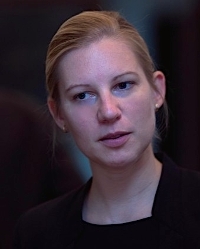 in the Netherlands and editor-in-chief of the journal Itinerario. Her research focuses on the international history of South Asia. Her current project, entitled "Southern Crossings: Indian activists and the Afro-Asian moment in the early Cold War", is funded by an NWO VENI grant (2018-2022). Stolte is also the co-editor of the book series Global Connections: Routes and Roots (Leiden University Press). In 2020, she was awarded an Early Career Award by the Royal Netherlands Academy of Arts and Sciences (KNAW). Link: https://www.universiteitleiden.nl/en/staffmembers/carolien-stolte#tab-1
in the Netherlands and editor-in-chief of the journal Itinerario. Her research focuses on the international history of South Asia. Her current project, entitled "Southern Crossings: Indian activists and the Afro-Asian moment in the early Cold War", is funded by an NWO VENI grant (2018-2022). Stolte is also the co-editor of the book series Global Connections: Routes and Roots (Leiden University Press). In 2020, she was awarded an Early Career Award by the Royal Netherlands Academy of Arts and Sciences (KNAW). Link: https://www.universiteitleiden.nl/en/staffmembers/carolien-stolte#tab-1
Michele L. Louro is an Associate Professor of History at Salem State  University. She received her Ph.D. from Temple University and is broadly trained in the fields of modern South Asian history, British imperial history, international history, and world history. She is author to Comrades against Imperialism: Nehru, India and Interwar Internationalism (Cambridge University Press, 2018). She is the president of the Society for Advancing the History of South Asia (SAHSA). Link: https://directory.salemstate.edu/profile/michele.louro
University. She received her Ph.D. from Temple University and is broadly trained in the fields of modern South Asian history, British imperial history, international history, and world history. She is author to Comrades against Imperialism: Nehru, India and Interwar Internationalism (Cambridge University Press, 2018). She is the president of the Society for Advancing the History of South Asia (SAHSA). Link: https://directory.salemstate.edu/profile/michele.louro
Heather Streets-Salter is a Professor of History at Northeastern 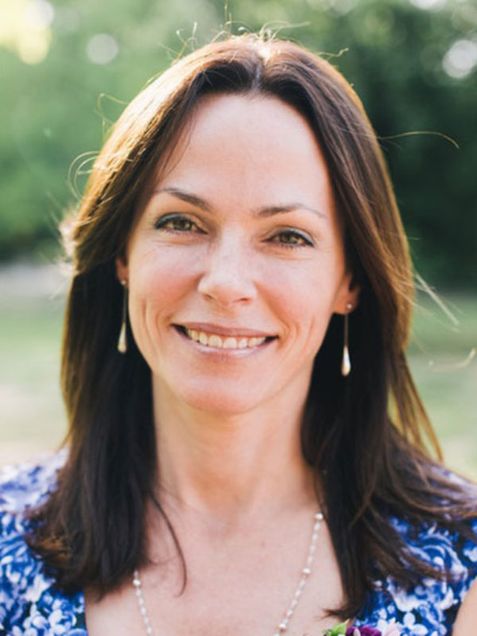 University. Her research focuses on world history, the structure of empires and colonial relationships, and the scholarship of pedagogy. She is the author of World War One in Southeast Asia: Colonialism and Anti-Colonialism in an Era of Global Conflict (2017), Empires and Colonies in the Modern World (2010) with Trevor Getz, Martial Races: The Military, Martial Races, and Masculinity in British Imperial Culture, 1857-1914 (2004), and Traditions and Encounters: A Brief Global History (2006, 2009, 2012) with Jerry Bentley and Herb Ziegler. Link: https://cssh.northeastern.edu/faculty/heather-streets-salter/
University. Her research focuses on world history, the structure of empires and colonial relationships, and the scholarship of pedagogy. She is the author of World War One in Southeast Asia: Colonialism and Anti-Colonialism in an Era of Global Conflict (2017), Empires and Colonies in the Modern World (2010) with Trevor Getz, Martial Races: The Military, Martial Races, and Masculinity in British Imperial Culture, 1857-1914 (2004), and Traditions and Encounters: A Brief Global History (2006, 2009, 2012) with Jerry Bentley and Herb Ziegler. Link: https://cssh.northeastern.edu/faculty/heather-streets-salter/
Sana Tannoury-Karam is a historian of the modern Middle East, 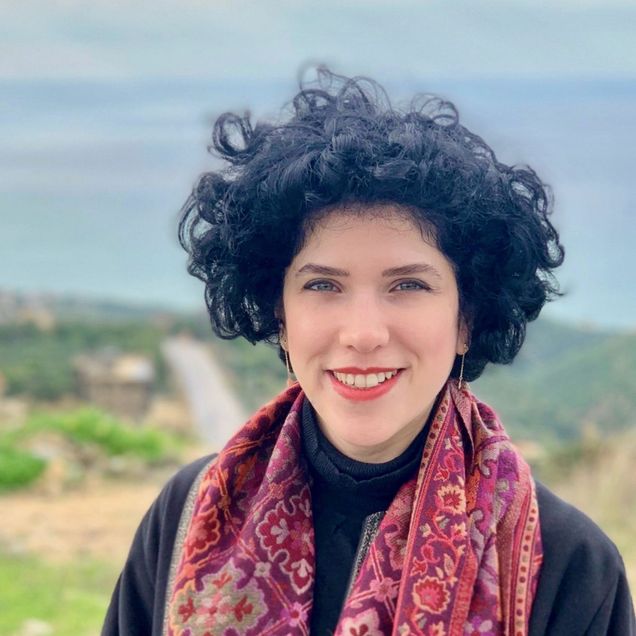 writing on the intellectual history of the Left in the Levant. She received her PhD in History from Northeastern University and holds an MA in Political Studies from the American University of Beirut. Her latest article “This War is Our War: Anti-Fascism Among Lebanese Leftist Intellectuals during World War Two” in Journal of World History 30, no. 3 (September 2019). In the academic year 2020/21, Sana Tannoury-Karam is a EUME Fellow at the Forum Transregionale Studien, affiliated with the Center for Global History at Freie Universität Berlin. Link: https://www.eume-berlin.de/en/fellows/vita/sana-tannoury-karam.html
writing on the intellectual history of the Left in the Levant. She received her PhD in History from Northeastern University and holds an MA in Political Studies from the American University of Beirut. Her latest article “This War is Our War: Anti-Fascism Among Lebanese Leftist Intellectuals during World War Two” in Journal of World History 30, no. 3 (September 2019). In the academic year 2020/21, Sana Tannoury-Karam is a EUME Fellow at the Forum Transregionale Studien, affiliated with the Center for Global History at Freie Universität Berlin. Link: https://www.eume-berlin.de/en/fellows/vita/sana-tannoury-karam.html
DISCUSSANT
Su Lin Lewis is a Senior Lecturer in Modern Global History, Department 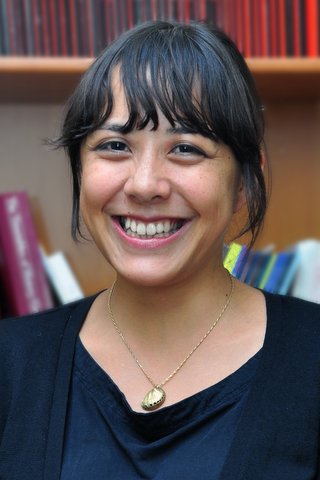 of History at the University of Bristol in the United Kingdom. Before arriving at Bristol in September 2014, she was Lecturer in Modern History at the University of Birmingham from 2013-2014. She specializes in global and transnational history in the twentieth century, with a thematic focus on urban history, civil society, gender, cosmopolitanism, internationalism, decolonization, and migration, from the late colonial era to the Cold War. Her geographical focus is mainly Southeast Asia (especially Burma, Malaysia, Indonesia, and Thailand), along with an ever-increasing interest in port-cities of the Indian Ocean and Pacific Rim. Link: https://research-information.bris.ac.uk/en/persons/su-lin-lewis
of History at the University of Bristol in the United Kingdom. Before arriving at Bristol in September 2014, she was Lecturer in Modern History at the University of Birmingham from 2013-2014. She specializes in global and transnational history in the twentieth century, with a thematic focus on urban history, civil society, gender, cosmopolitanism, internationalism, decolonization, and migration, from the late colonial era to the Cold War. Her geographical focus is mainly Southeast Asia (especially Burma, Malaysia, Indonesia, and Thailand), along with an ever-increasing interest in port-cities of the Indian Ocean and Pacific Rim. Link: https://research-information.bris.ac.uk/en/persons/su-lin-lewis
GDPC Global China Initiative: Estimating the Social Costs of 21st Century Coal Fired Power – Evidence from a Chinese Financed Power Plant in Pakistan, with Dr. Bruce Larson (Dec. 9, 2020)
As part of the Fall 2020 Global China Research Colloquium, Dr. Bruce Larson will present on the social costs of 21st century coal fired power, based on evidence from a Chinese-financed power plant in Pakistan. Dr. Larson is an applied economist with the Department of Global Health and the Center for Global Health and Development (CGHD). He has conducted research activities in about 25 countries over the past 28 years, mainly in Africa, the former Soviet Union and the US.
Estimating the Social Costs of 21st Century Coal Fired Power – Evidence from a Chinese Financed Power Plant in Pakistan
Wednesday, Dec. 9, 2020 from 9:00 to 10:00 am ET via Zoom
As part of the Fall 2020 Global China Research Colloquium, Dr. Bruce Larson, Dr. Jeffrey Geddes and Arden Radford will present on the social costs of 21st century coal-fired power, based on evidence from a Chinese-financed power plant in Pakistan.
Speakers:
- Dr. Bruce Larson, Professor of Global Health, Boston University
- Dr. Jeffrey Geddes, Assistant Professor, Earth and Environment, Boston University
- Arden Radford, Global China Initiative Fellow, Global Development Policy Center, Boston University
Cold Wars: Asia, Middle East and Europe, with Lorenz Lüthi (Dec. 9, 2020)
The Frederick S. Pardee School of Global Studies and BU Center for the Study of Asia are pleased to invite you to the next online event of the Decolonization@ 60 Series
Decolonization Book Talk #2
Wednesday, Dec. 9, 2020, 10:00- 11:30 AM EST
Cold Wars: Asia, Middle East, Europe
(Cambridge, 2020)
· With Author: Lorenz Lüthi (McGill University)
· Discussants: Igor Lukes (Boston University),
Victor McFarland (University of Missouri), and
Jayita Sarkar (Boston University)
Register for Book Talk #2 here
About the Speakers:
Lorenz M. Lüthi is Associate Professor at McGill University, Montréal,  and is a leading historian of the Cold War. His first book The Sino-Soviet Split: Cold War in the Communist World (2008) won the 2008 Furniss Award and the 2010 Marshall Shulman Book Prize. His publications on the Vietnam war, Asian-African internationalism, and non-alignment have broken new ground in Cold War history. Link: https://www.mcgill.ca/history/lorenz-lüthi
and is a leading historian of the Cold War. His first book The Sino-Soviet Split: Cold War in the Communist World (2008) won the 2008 Furniss Award and the 2010 Marshall Shulman Book Prize. His publications on the Vietnam war, Asian-African internationalism, and non-alignment have broken new ground in Cold War history. Link: https://www.mcgill.ca/history/lorenz-lüthi
DISCUSSANTS
Igor Lukes is Professor of International Relations and History at Boston  University. Lukes writes primarily about Central Europe. His long list of publications deal with the interwar period, the Cold War, and contemporary developments in East Central Europe and Russia. In 2018 he was a Visiting Fellow at the Institut für die Wissenschaften vom Menschen in Vienna. He was the 2017 Phi Beta Kappa Honorary Initiate, and had Erasmus Mundus Grant in 2015 and a Fulbright Specialist Grant in 2014. He was a 2012 W. Glenn Campbell and Rita Ricardo-Campbell National Fellow and the Bitton National Fellow at the Hoover Institution, Stanford University. In 2004-05 he was a Fellow at The Woodrow Wilson International Center for Scholars. His work has won the support of various other institutions, including Fulbright, Fulbright-Hays, IREX, and the National Endowment for the Humanities. In 1997 Lukes won the Metcalf Award for Excellence in Teaching at Boston University. Lukes is Honorary Consul General of the Czech Republic in Boston. Link: https://www.bu.edu/pardeeschool/profile/igor-lukes/
University. Lukes writes primarily about Central Europe. His long list of publications deal with the interwar period, the Cold War, and contemporary developments in East Central Europe and Russia. In 2018 he was a Visiting Fellow at the Institut für die Wissenschaften vom Menschen in Vienna. He was the 2017 Phi Beta Kappa Honorary Initiate, and had Erasmus Mundus Grant in 2015 and a Fulbright Specialist Grant in 2014. He was a 2012 W. Glenn Campbell and Rita Ricardo-Campbell National Fellow and the Bitton National Fellow at the Hoover Institution, Stanford University. In 2004-05 he was a Fellow at The Woodrow Wilson International Center for Scholars. His work has won the support of various other institutions, including Fulbright, Fulbright-Hays, IREX, and the National Endowment for the Humanities. In 1997 Lukes won the Metcalf Award for Excellence in Teaching at Boston University. Lukes is Honorary Consul General of the Czech Republic in Boston. Link: https://www.bu.edu/pardeeschool/profile/igor-lukes/
Victor McFarland is an associate professor in the Department of  History, University of Missouri. His research interests center on energy, the environment, and U.S. relations with the Middle East, with a special focus on Saudi Arabia. His first book, Oil Powers: A History of the U.S.-Saudi Alliance, was published by Columbia University Press in 2020. Originally from North Idaho, Dr. McFarland received his B.A. from Stanford University and his M.A., M.Phil., and Ph.D. degrees from Yale University. Before coming to the University of Missouri, he was a Miller Center fellow at the University of Virginia in 2012-13 and a Dickey Center fellow at Dartmouth College in 2013-14. In 2018-19 he served as a Warren Center faculty fellow at Harvard University.
History, University of Missouri. His research interests center on energy, the environment, and U.S. relations with the Middle East, with a special focus on Saudi Arabia. His first book, Oil Powers: A History of the U.S.-Saudi Alliance, was published by Columbia University Press in 2020. Originally from North Idaho, Dr. McFarland received his B.A. from Stanford University and his M.A., M.Phil., and Ph.D. degrees from Yale University. Before coming to the University of Missouri, he was a Miller Center fellow at the University of Virginia in 2012-13 and a Dickey Center fellow at Dartmouth College in 2013-14. In 2018-19 he served as a Warren Center faculty fellow at Harvard University.
Jayita Sarkar is an Assistant Professor at Boston University’s Frederick 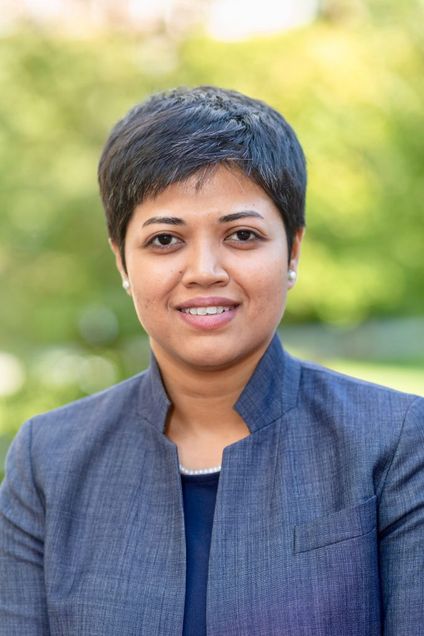 S. Pardee School of Global Studies, where she teaches diplomatic and political history. Her expertise is in 20th century South Asia, history of U.S. foreign relations, nuclear technologies, and connected partitions. She is also the founding director of the Global Decolonization Initiative at BU’s Pardee School. Her first book, Ploughshares & Swords: India’s Nuclear Program in the Global Cold War, examines the first forty years of India’s nuclear program through the prisms of geopolitics and technopolitics. It is under contract to be published with Cornell University Press. Her prize-winning research has been published in the Journal of Cold War Studies, Cold War History, International History Review, Journal of Strategic Studies, Nonproliferation Review, and elsewhere. In 2020-21, she is on research leave from Boston University to make progress on her second book project as an Ernest May Fellow in History & Policy, and an affiliate of the Weatherhead Initiative on Global History (WIGH) at Harvard University. Link: https://www.bu.edu/pardeeschool/profile/jayita-sarkar/
S. Pardee School of Global Studies, where she teaches diplomatic and political history. Her expertise is in 20th century South Asia, history of U.S. foreign relations, nuclear technologies, and connected partitions. She is also the founding director of the Global Decolonization Initiative at BU’s Pardee School. Her first book, Ploughshares & Swords: India’s Nuclear Program in the Global Cold War, examines the first forty years of India’s nuclear program through the prisms of geopolitics and technopolitics. It is under contract to be published with Cornell University Press. Her prize-winning research has been published in the Journal of Cold War Studies, Cold War History, International History Review, Journal of Strategic Studies, Nonproliferation Review, and elsewhere. In 2020-21, she is on research leave from Boston University to make progress on her second book project as an Ernest May Fellow in History & Policy, and an affiliate of the Weatherhead Initiative on Global History (WIGH) at Harvard University. Link: https://www.bu.edu/pardeeschool/profile/jayita-sarkar/
The Promise and Perils of Chinese Democracy: Hong Kong and Taiwan (Dec. 11, 2020)
The BU Center for the Study of Asia invites you to join this important online discussion on
Friday, December 11, 2020
9:00-10:30 am (Boston Time)
About the Speakers:
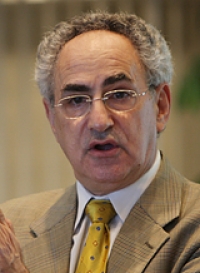 University of Science and Technology, and Director, Transnational China Consulting Limited. He is an Adjunct Professor, School of Social Sciences and Humanities, National University of Defence Technology, Changsha, Hunan, and Vice-President of the Center on China’s Globalization (Beijing). He was a Postdoctoral Fellow at Harvard University in 1984-86. He has lived in Hong Kong since 1996 and was a full-time faculty member at HKUST for 25 years.
University of Science and Technology, and Director, Transnational China Consulting Limited. He is an Adjunct Professor, School of Social Sciences and Humanities, National University of Defence Technology, Changsha, Hunan, and Vice-President of the Center on China’s Globalization (Beijing). He was a Postdoctoral Fellow at Harvard University in 1984-86. He has lived in Hong Kong since 1996 and was a full-time faculty member at HKUST for 25 years.He is the author or editor of ten books, including Internationalizing China: domestic interests and global linkages (2002) and Sino-U.S. Energy Triangles: Resource Diplomacy under Hegemony (2016). “’The best are yet to come’: State programs, domestic resistance and reverse migration of high-level talent to China,” appeared in the Journal of Contemporary China (Sept. 2020), and in May 2020, his report, America Challenges China’s National Talent Programs (with Kang Siqin), was published by the Center for Strategic and International Studies in Washington, DC. He is a Contributing Writer to the South China Morning Post.
Zweig's research interests include Chinese Politics and Foreign Policy, China’s Resource Diplomacy, China’s talent programs and reverse migration, Sino-American Relations, East Asian International Relations, and Hong Kong-Mainland relations. His representative publications include:
- Internationalizing China: Domestic Interests and Global Linkages(Cornell Series in Political Economy, Cornell University Press, 2002).
- Sino-U.S. Energy Triangles: Resource Diplomacy under Hegemony,David Zweig and Hao Yufan, eds. (Routledge: London, 2015, published in paper in 2016).
- Freeing China's Farmers: Rural Restructuring in the Reform Era(M.E. Sharpe, 1997).
- China's Brain Drain to the United States, with Chen Changgui (Berkeley: China Research Monograph Series, 1995; republished by Routledge in 2013).
- Agrarian Radicalism in China, 1968‑1981(Cambridge: Harvard University Press, 1989).
- “’The best are yet to come’: State programs, domestic resistance and reverse migration of high-level talent to China,” with Siqin Kang and Henry Wang Huiyao,Journal of Contemporary China, September 2020.
- “America Challenges China’s National Talent Programs,” with Siqin Kang, Center for Strategic and International Studies, No. 4, May 2020.
- “Familiarity Breeds Contempt: China’s growing soft power deficit in Hong Kong,” in Kingsley Edney, Stanley Rosen, and Ying Zhou,Soft Power with Chinese Characteristics: China’s Campaign for Hearts and Minds(Routledge: 2020), pp. 241-261.
- “A Photo Essay of a Failed Reform: Beida, Tiananmen Square and the Defeat of Deng Xiaoping in 1975-76,”China Perspectives, No. 1 (2016): 5-28.
- “Overseas Students, Returnees and the Diffusion of International Norms into Post-Mao China,” with Feng Yang,International Studies Review, 16 (Fall 2014): 252-63.
- “Can China Bring Back the Best? The Communist Party Organizes China’s Search for Talent,” with Huiyao Wang,The China Quarterly, no. 215 (September 2103): 590-615.
- “Educating a New Generation of Students: Transferring Knowledge and Norms from Hong Kong to the Mainland,” with Liu Mei-hua,China Perspectives, 1 (2013): 73-86.
- “Returnee Entrepreneurs: impact on China's globalization process,” with Wang Huiyao and Lin Xiaohua,Journal of Contemporary China, 20: 70 (2011): 413-431.
- “Images of the World: Studying Abroad and Chinese Attitudes towards International Affairs,” with Han Donglin,The China Quarterly, No. 202 (June 2010): 290-306.
- “Redefining the ‘Brain Drain’: China’s Diaspora Option,” with Chung Siu-Fung and Han Donglin,Science, Technology and Society, Vol.13, No.1 (2008): 1-33.
- “Rewards of Technology: Explaining China’s Reverse Migration,” (with Chung Siu Fung, and Wilfried Vanhonacker),Journal of International Migration and Integration,Volume 7, No. 4 (Fall 2006): 449-71.
- “Learning to Compete: China’s Efforts to Encourage a Reverse Brain Drain,”International Labour Review, vol. 145, nos. 1-2 (2006): 65-90.
- “China’s Global Hunt for Energy,”Foreign Affairs(with Bi Jianhai), Vol. 84, No. 5 (September-October 2005): 25-38.
Margaret Lewis (https://law.shu.edu/faculty/full-time/margaret-lewis.cfm)  (BA Columbia University, JD New York University School of Law) focuses on law in China and Taiwan with an emphasis on criminal justice and human rights.
(BA Columbia University, JD New York University School of Law) focuses on law in China and Taiwan with an emphasis on criminal justice and human rights.
Maggie Lewis has been a Fulbright Senior Scholar at National Taiwan University, a visiting professor at Academia Sinica, a Public Intellectuals Program Fellow with the National Committee on United States-China Relations, and a delegate to the US-Japan Foundation's US-Japan Leadership Program. She is a Member of the Council on Foreign Relations. Her publications have appeared in a number of academic journals including the Columbia Journal of Transnational Law, NYU Journal of International Law and Politics, Vanderbilt Journal of Transnational Law, and Virginia Journal of International Law. She also co-authored the book Challenge to China: How Taiwan Abolished its Version of Re-Education Through Labor with Jerome A. Cohen.
Professor Lewis has participated in the State Department’s Legal Experts Dialogue with China, has testified before the Congressional-Executive Commission on China, and is a consultant to the Ford Foundation.
Before joining Seton Hall, Maggie Lewis served as a Senior Research Fellow at NYU School of Law’s U.S.-Asia Law Institute where she worked on criminal justice reforms in China. Following graduation from law school, she worked as an associate at the law firm of Cleary, Gottlieb, Steen & Hamilton in New York City. She then served as a law clerk for the Honorable M. Margaret McKeown of the U.S. Court of Appeals for the Ninth Circuit in San Diego. After clerking, she returned to NYU School of Law and was awarded a Furman Fellowship.
Professor Lewis received her J.D., magna cum laude, from NYU School of Law, where she was inducted into the Order of the Coif and was a member of Law Review. She received her B.A., summa cum laude, from Columbia University and also studied at the Hopkins-Nanjing Center for Chinese and American Studies in Nanjing, China.
SELECTED PUBLICATIONS:
LAW REVIEW ARTICLES
Criminalizing China,111 J. Crim. L. & Criminology(forthcoming 2020)
Why China Should Unsign the International Covenant on Civil and Political Rights,53 Vand. J. Transnat’l L. 131(2020)
Forging Taiwan’s Legal Identity,44 Brook. J. Int’l L.(2019)
Safeguarding the Boundaries of Right: Jerome A. Cohen’s Experience with Law in the People’s Republic of China,65 Am. J. Comp. L. 745(2018) (invited submission)
Human Rights and the U.S.-China Relationship,49 Geo. Wash. Int’l L. Rev. 471(2017)
When Foreign is Criminal,55 Va. J. Int'l L. 625(2015)
Criminal Law Pays: Penal Law’s Contribution to China’s Economic Development,47 Vand. J. Transnat'l L. 371(2014)
How Taiwan’s Constitutional Court Reined in Police Power: Lessons for the People’s Republic of China,37 Fordham Int'l L.J. 863(2014) (co-authored with Jerome A. Cohen)
Presuming Innocence, or Corruption, in China,50 Colum. J. Transnat’l L. 287(2012)
Controlling Abuse to Maintain Control: The Exclusionary Rule in China,43 N.Y.U. J. Int'l. L. & Pol. 629(2011) (awarded Jerome A. Cohen Prize for International Law and East Asia)
The Tension Between Leniency and Severity in China's Death Penalty Debate,24 Colum. J. Asian L. 303(2011) (invited submission)
Taiwan's New Adversarial System and the Overlooked Challenge of Efficiency-Driven Reforms,49 Va. J. Int'l L. 651(2009)
Note, An Analysis of State Responsibility for the Chinese-American Airplane Collision Incident,77 N. Y. U. L. Rev. 1404(2002)
BOOKS
Challenge to China: How Taiwan Abolished its Version of Re-Education Through Labor,2013: English version from Berkshire Publishing and NYU School of Law, U.S.-Asia Law Institute; Chinese version from Yuan Zhao Publishing, Taiwan(co-authored with Jerome A. Cohen) (2013)
BOOK CHAPTERS
Seeking Truthful Names: The External Implications of China’s Internal Ideology on Governance, in Law and the Party in Xi Jinping’s China: Ideology and Organization,Cambridge University Press(Rogier Creemers & Susan Trevaskes eds.) (forthcoming 2020)
Creative Contacts: Taiwan’s Quest for International Law Enforcement Cooperation, inChinese (Taiwan) Yearbook of International Law and Affairs(Ying-jeou Ma ed., Brill) (2019)
Freedom from Torture, inHandbook on Human Rights in China(Sarah Biddulph & Joshua Rosenzweig eds., Edward Elgar) (2019)
Who Shall Judge? Taiwan’s Exploration of Lay Participation in Criminal Trials, inTaiwan and International Human Rights: A Story of Transformation(William P. Alford, Jerome A. Cohen & Chang-fa Lo eds., Springer) (2019)
Constitutions Across the Strait, inInternational Engagement in China's Human Rights(Chen Dingding & Titus Chen eds., Routledge) (2015)
Legal Systems in China, inHandbook of Chinese Criminology(Liqun Cao, et al. eds., Routledge) (2012)
The Enduring Importance of Police Repression: Laojiao, the Rule of Law and Taiwan's Alternative Evolution, in The Impact of China's 1989 Tiananmen Massacre,Jean-Philippe Béja, ed.,Routledge(with Jerome A. Cohen) (2010)
Rachel Brulé on “Women, Power, and Property: The Paradox of Gender Equality Laws in India” (Dec. 11, 2020)
The Global Development Policy Center's Human Capital Initiative
is very pleased to invite you to an important book launch talk and discussion by
Rachel Brulé
(Assistant Professor of Global Development Policy, Pardee School of Global Studies, Boston University)
Women, Power, and Property:
The Paradox of Gender Equality Laws in India
As part of the Human Capital Initiative (HCI), Professor Rachel Brulé will present her new book “Women, Power, and Property: The Paradox of Gender Equality Laws in India,” in a webinar moderated by HCI Associate Director Patricia Cortes.
Quotas for women in government have swept the globe. Yet we know little about their capacity to upend entrenched social, political, and economic hierarchies. Brulé seeks to explore this issue within the context of India, the world’s largest democracy, using cutting-edge research design and extensive field research to make connections among political representation, backlash, and economic empowerment.
Her findings show that women in government catalyze access to fundamental economic rights: property rights. Women in politics also have the power to support constituent rights at critical junctures, such as marriage negotiations, sparking integrative solutions to intra-household bargaining. Although they can lead to backlash, quotas are essential for enforcement of rights. In this groundbreaking study, Brulé shows how quotas can operate as a crucial tool to foster equality and benefit the women they are meant to empower.
Register to attend
For additional information, click here
About the Speaker:
Rachel Brule (http://www.bu.edu/pardeeschool/profile/rachel-brule/) is an Assistant Professor of Global 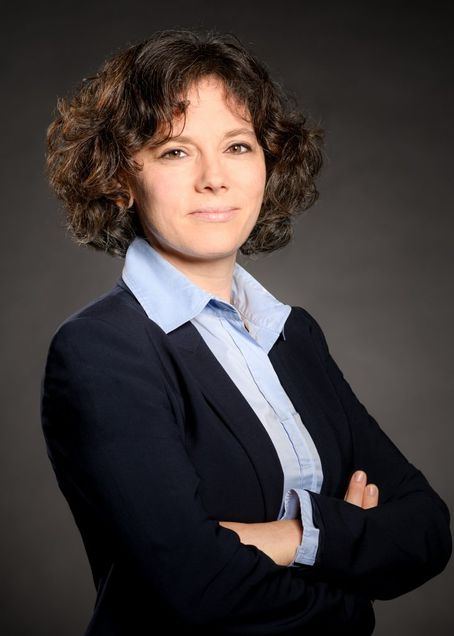 Development Policy at the Frederick S. Pardee School of Global Studies at Boston University and Core Faculty of the Global Development Policy Center’s Human Capital Initiative. Her research interests are broadly in comparative politics, international development, political economy, and gender, with a geographical focus on South Asia. Specifically, she studies the relationship between political representation and inequality in social and economic domains across democratic and hybrid political regimes. Her book, Women’s Representation and Resistance (Cambridge University Press, forthcoming) shows that women’s political representation catalyzes effective claims to fundamental economic rights, in particular land inheritance. She has conducted extensive field work in India, Africa, and the Middle East, and her current research leverages a combination of randomized controlled trials, survey experiments, and natural quasi-experiments to improve causal inference about when quotas effectively redistribute power and improve policy and economic outcomes for socially stigmatized groups across India, what enables women’s substantive political engagement and empowerment in hybrid regimes such as Nepal, and how the nature of inequality alters support for local and global protection of citizens’ economic and environmental welfare across developing countries.
Development Policy at the Frederick S. Pardee School of Global Studies at Boston University and Core Faculty of the Global Development Policy Center’s Human Capital Initiative. Her research interests are broadly in comparative politics, international development, political economy, and gender, with a geographical focus on South Asia. Specifically, she studies the relationship between political representation and inequality in social and economic domains across democratic and hybrid political regimes. Her book, Women’s Representation and Resistance (Cambridge University Press, forthcoming) shows that women’s political representation catalyzes effective claims to fundamental economic rights, in particular land inheritance. She has conducted extensive field work in India, Africa, and the Middle East, and her current research leverages a combination of randomized controlled trials, survey experiments, and natural quasi-experiments to improve causal inference about when quotas effectively redistribute power and improve policy and economic outcomes for socially stigmatized groups across India, what enables women’s substantive political engagement and empowerment in hybrid regimes such as Nepal, and how the nature of inequality alters support for local and global protection of citizens’ economic and environmental welfare across developing countries.
Before joining BU, Rachel was an Assistant Professor of Political Science at New York University, based in Abu Dhabi and affiliated in New York. Her articles are forthcoming or published in the Journal of Politics, the Journal of Development Economics, and Asian Survey. Her co-authored work with Nikhar Gaikwad (“Culture, Capital & the Gender Gap in Political Economy Preferences”) was awarded the Pi Sigma Alpha Award for Best Paper Overall and Kellogg Notre Dame Award for Best Paper in Comparative Politics presented at the Midwest Political Science Association’s annual 2017 meeting. She is a recipient of a Marshall Scholarship and a Truman Scholarship, and has worked to develop, implement, and analyze randomized control trials on the impact of economic rights and resources in collaboration with MIT’s Poverty Action Lab and the World Bank. She holds a PhD in Political Science from Stanford University.
SPECIALIZATION:
Comparative Politics, International Development, Political Economy, Gender, Representation, Inequality, South Asia
Decolonization @60 Symposium (Dec. 14, 2020)
Decolonization@60, the BU Center for the Study of Asia, and the Frederick S. Pardee School of Global Studies invite you to take part in the Decolonization@60 Symposium
Monday Dec. 14, 2020 from 9:00 to 12:30 pm EST via Zoom
Please RSVP to receive the Zoom link for each event
Keynote: https://bostonu.zoom.us/meeting/register/tJMud-ytqjMoH9SP7zThNgYLjVM2mTrh4slP
Roundtable: https://bostonu.zoom.us/meeting/register/tJArd-CupzwpGtb-ktL-9RL6364Fj641i8pJ
If you have any questions, please contact decolo@bu.edu
About the Speakers:
Keynote Speaker: Willem van Schendel (University of Amsterdam & International Institute of Social History, Amsterdam)  works in the fields of history, anthropology and sociology of Asia. Recent books include A History of Bangladesh (new edition, July 2020); The Camera as Witness: A Social History of Mizoram, Northeast India (with Joy L.K. Pachuau, 2015); and Embedding Agricultural Commodities: Using Historical Evidence, 1840s–1940s (ed., 2017). His publications can be found at https://uva.academia.edu/WillemVanSchendel.
works in the fields of history, anthropology and sociology of Asia. Recent books include A History of Bangladesh (new edition, July 2020); The Camera as Witness: A Social History of Mizoram, Northeast India (with Joy L.K. Pachuau, 2015); and Embedding Agricultural Commodities: Using Historical Evidence, 1840s–1940s (ed., 2017). His publications can be found at https://uva.academia.edu/WillemVanSchendel.
Roundtable Participants:

Sana Aiyar is a historian of modern South Asia at MIT, where she is an associate professor of history. Her broad research and teaching interests lie in the regional and transnational history of South Asia and South Asian diasporas, with a particular focus on colonial and postcolonial politics and society in the Indian Ocean. Her first book, Indians in Kenya: The Politics of Diaspora (Harvard University Press, 2015), explores the interracial and extraterritorial diasporic political consciousness of South Asians in Kenya from c. 1895 to 1968 who mediated constructions of racial and national identity across the Indian Ocean. Professor Aiyar is currently working on two projects. One is a study of the everyday encounters of African soldiers and South Asian civilians during the Second World War when over a hundred thousand military recruits from East and West Africa were stationed in India and Burma. The second, “India’s First Partition,” is an examination of migration, religious and ethnic politics, nationalism, and anticolonial activism across India and Burma in the 1930s.
Kalyani Ramnath is a historian of modern South Asia, with research and teaching interests in legal 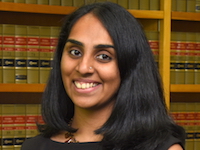 history, histories of migration and displacement, transnational history and questions of archival method. She is a Prize Fellow in Economics, History, and Politics at the Center for History and Economics and Lecturer at Harvard University. She received her Ph.D. in history from Princeton University in 2018, holds an LLM from Yale, and a JD-equivalent from the National Law School of India.
history, histories of migration and displacement, transnational history and questions of archival method. She is a Prize Fellow in Economics, History, and Politics at the Center for History and Economics and Lecturer at Harvard University. She received her Ph.D. in history from Princeton University in 2018, holds an LLM from Yale, and a JD-equivalent from the National Law School of India.
Debjani Bhattacharyya is an associate professor of history at Drexel University. Her work explores the 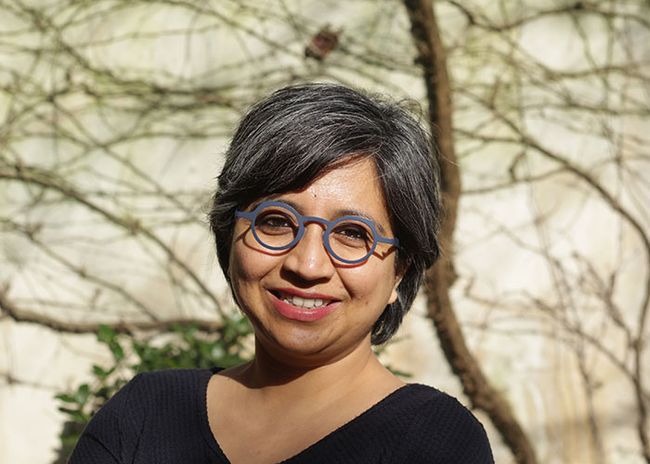 intersection of legal and environmental history. Professor Bhattacharyya’s research is driven by the desire to understand how legal and economic structures order our conceptualization of environmental transformations and shape how we respond to climate crisis. Her book, Empire and Ecology in the Bengal Delta: The Making of Calcutta (Cambridge University Press, 2018) won the 2019 honorable mention for the best book in Urban History. She holds a PhD from Emory University.
intersection of legal and environmental history. Professor Bhattacharyya’s research is driven by the desire to understand how legal and economic structures order our conceptualization of environmental transformations and shape how we respond to climate crisis. Her book, Empire and Ecology in the Bengal Delta: The Making of Calcutta (Cambridge University Press, 2018) won the 2019 honorable mention for the best book in Urban History. She holds a PhD from Emory University.
Sanjib Baruah is is professor of political studies at Bard College, New York and honorary research  professor at Centre for Policy Research (CPR), New Delhi. He is the author of a number of books and many articles. His books include Durable Disorder: Understanding the Politics of Northeast India and India against Itself: Assam and the Politics of Nationality. He recently published in In the Name of the Nation: India and its Northeast (Stanford University Press, 2020)
professor at Centre for Policy Research (CPR), New Delhi. He is the author of a number of books and many articles. His books include Durable Disorder: Understanding the Politics of Northeast India and India against Itself: Assam and the Politics of Nationality. He recently published in In the Name of the Nation: India and its Northeast (Stanford University Press, 2020)
Prasannan Parthasarathi is Professor and Chair at the Department of History at Boston College. He  teaches courses on modern South Asia, global history, and environmental history. He is now engaged in a study of environmental change, agriculture, and labor in nineteenth-century South India. His research has been supported by fellowships from the Dibner Institute and the American Council for Learned Societies. He is a senior editor of International Labor and Working Class History and serves on the editorial boards of a number of journals including Textile History, the Medieval History Journal, and the American Historical Review.
teaches courses on modern South Asia, global history, and environmental history. He is now engaged in a study of environmental change, agriculture, and labor in nineteenth-century South India. His research has been supported by fellowships from the Dibner Institute and the American Council for Learned Societies. He is a senior editor of International Labor and Working Class History and serves on the editorial boards of a number of journals including Textile History, the Medieval History Journal, and the American Historical Review.
Decolonization@60 is part of the Global Decolonization Initiative (GloDec) at the BU Pardee School which brings together undergraduate and graduate students, postdocs and faculty to develop an intellectual community passionate about understanding the ongoing processes of decolonization through studying borders, borderlands, partitions, identities, race, citizenship and political violence.
GloDec comprises four kinds of programs that predominantly relate to student and faculty research.
STUDENT RESEARCH PROJECTS
GloDec's research projects include its flagship Partitions Project to develop a database and a series of case studies on territorial partitions, and the Nuclear Sites Project to develop in-depth case studies on nuclear weapons, energy, and mining sites located in the world's borderlands. See the projects' pages for more information.
STUDENT-LED PROGRAMS
-
"Students for Decolonization" [SDECOL]
Approved by BU's Student Activities Office (SAO), SDECOL is an independent undergraduate student group that aims to facilitate on-campus communication and research on decolonization and related subjects.
-
Decolonization Film Series
GloDec's partnership project with SDECOL, with the involvement of M.A. students the film series showcases three films/documentaries per semester on decolonization followed by discussion led by a BU faculty member.
DECOLONIZATION WORK-IN-PROGRESS SEMINAR SERIES
The seminar is open to Ph.D. students, postdocs, and junior faculty at Boston University and beyond, who are conducting innovative research on themes associated with decolonization. See seminar page for more information.
DECOLONIZATION@60 EVENTS, 2020-21 & 2021-22
The Global Decolonization Initiative at the BU Pardee School grew out of a one-day workshop that was to be held at Boston University on March 18, 2020, but could not take place owing to the COVID-19 closures. Hosted on the 60th anniversary of the United Nations General Assembly Resolution 1514, “Declaration on the Granting of Independence to Colonial Countries and Peoples,” the aim of that workshop was to lead a provocative discussion on decolonization as multiple global processes that are not frozen in time of the 1940s, 1950s and the 1960s, but rather one that forms an intellectual framework to understand borderlands and political violence today. In AY 2020-21 and 2021-22, the content of the workshop will take place on Zoom hosted by the Global Decolonization Initiative [one event per semester].
For additional information about the Global Decolonization Initiative at Boston University, please see https://www.decolonizationworkshop.info/
